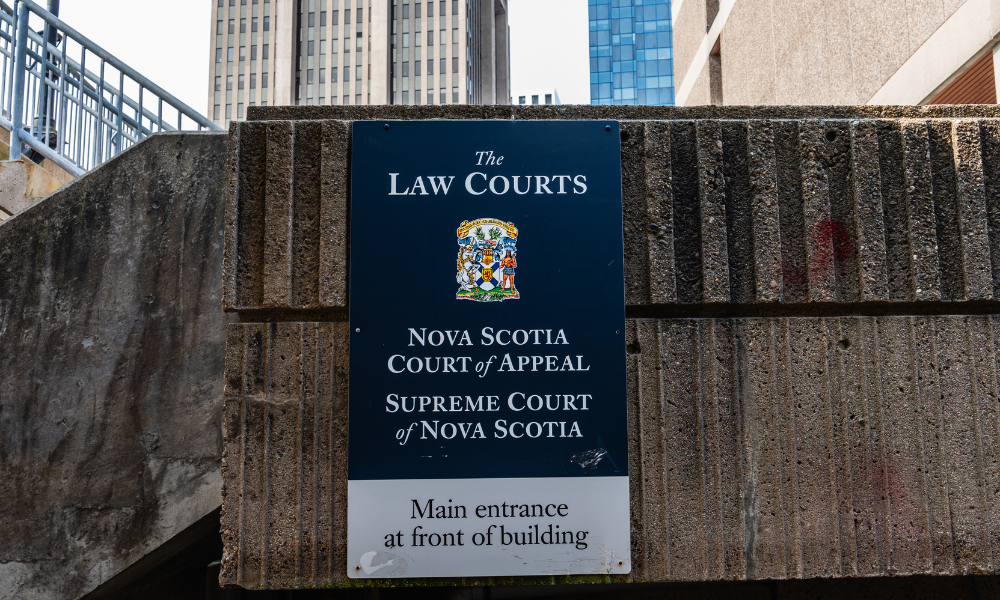
The Nova Scotia Court of Appeal rejected the facility's bid to appeal the certification

The daughter of a woman who died of COVID-19 at a Halifax long-term care facility can proceed with her class action against the facility and its related entities, according to the Nova Scotia Court of Appeal.
The appellate court said in a decision Monday that Northwoodcare Group Inc., a not-for-profit continuing care organization that operates the long-term care facility in Halifax, failed to justify its bid to appeal a lower court’s certification of Erica Surette’s lawsuit.
“To succeed on its leave application Northwood must raise an arguable issue – meaning a ground of appeal that is realistic and of sufficient substance to be capable of persuading a panel of this court to allow the appeal,” the appellate court said.
The court concluded, “I am satisfied that Northwood has not raised an arguable issue on appeal.” The court rejected Northwood’s argument that the lower court judge applied the wrong legal test to the case, adding that even if the judge had applied another two-part test that Northwood had advocated for, “the result would have been the same given the unchallenged findings by the judge.”
Surette filed the proposed class action in June 2020, alleging that the lack of pandemic safeguards at Northwood Halifax caused COVID-19 to spread in the facility. According to Surette, this led to the untimely deaths of residents, including her mother, as well as harms, losses, and damages to their surviving family members.
During the proposed class period of March 15 to June 30, 2020, 53 residents died after contracting COVID-19. Surette argued that Northwood owed proposed class members – individuals whose next of kin tested positive for the virus and died while living at Northwood facilities – a duty of care. However, Surette said Northwood failed to satisfy that duty.
In December, a Supreme Court of Nova Scotia judge ruled that it was appropriate for Surette’s lawsuit to proceed as a class action.
Northwood appealed. According to the organization, the lower court ruling was incorrect because the judge used the wrong legal test to assess whether the issues Surette raised would be shared by proposed class members, one of the criteria for certifying a lawsuit under Nova Scotia’s Class Proceedings Act.
Northwood argued that the test the judge should have used was “a two-part framework which requires a plaintiff to demonstrate there is (1) some basis in fact that the proposed common issue actually exists; and (2) some basis in fact that the proposed issues are common to each class member.”
According to the appellate court, the lower court instead used a test “equivalent to the second step.”
However, the appellate court rejected Northwood’s argument, concluding that the organization “did not provide any authority from the Supreme Court of Canada nor from this court endorsing this two-step framework.” The appellate court also agreed with the lower court’s finding that the result would have been the same even if it had applied the two-step test.
The appellate court added that Northwood “did not identify any question of fact or mixed fact and law that is challenged on appeal… Rather, the sole ground of appeal pertains to a question of law.
This approach “effectively renders Northwood’s sole ground of appeal to be academic,” the appellate court said. “An arguable issue must do more than simply raise a matter of pure academic interest.”
In a statement on Tuesday, Madeline Carter of Wagners Law Firm, one of the lawyers who represented Surette, told Canadian Lawyer, “We’re very pleased that this matter can now proceed to a trial. Class members filled the courtroom at the hearing of the certification motion. There are many people for whom this class action is very important.
“More broadly, the decision is a welcome affirmation of the one-step test for common issues on a certification motion in Nova Scotia,” she said. “Having a clear statement of the plaintiff’s evidentiary burden benefits all parties in future certification motions here, because it should lead to a more focused motion. Time, expenses, and judicial resources can be saved.”
Counsel for Northwood did not respond to a request for comment.